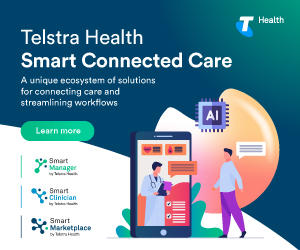3 Health data, privacy and security tips for 2019
Your medical practice may have survived in 2018 without any security glitches, but that doesn’t mean your systems are all air-tight for 2019. Here are some key health data, privacy and security tips to help you get prepared.
Be proactive, not reactive about data and security
Sensitive patient data is becoming an increasing hot topic, and with new laws now in place tackling cyber security breaches, the pressure is on health professionals and practice managers to embrace more robust, protected data management and storage solutions.
According to MedicalDirector’s latest Patient Engagement Survey 2018, conducted in partnership with online appointment and eHealth platform, HotDoc, patients value both privacy and security as a top priority in healthcare.
In fact, when it comes to accessing medical health records, over 90% of respondents agreed both security (availability, accuracy, safety and integrity of data) and privacy (confidentiality and appropriate use of data) are extremely important.
For medical practices serious about future-proofing their practice management system for 2019, strengthening data protection benefits everyone and helps to reduce the risk of regulatory burdens, financial losses, damaged reputation, and loss of patient trust.
All healthcare organisations need a proactive approach when it comes to managing personal information and develop a culture ingrained in data privacy, ensuring that any patient information collected is treated as an asset to be protected and managed with the utmost care.
Key tips
- Regularly revise security and privacy policy frameworks
- Give your IT framework a thorough health check
- Implement staff training to ensure everyone understands the importance of privacy and security in everyday workflow practices.
Make healthcare software updates a painless process
Having the latest healthcare applications are absolutely critical when it comes to combatting security breaches, and prudent healthcare providers and practice managers need to ensure all software systems are updated regularly.
In fact, one of the main reasons for installing the latest update is to stay protected from security threats. Older versions of software may not provide the same level of security, potentially leaving your practice data at risk.
If your software updates feel time consuming or labour-intensive, consider migrating to cloud-based software like Helix in 2019, which automatically updates and is built on the world-class Microsoft Azure Platform. This will help give you more peace of mind your software is always updated, while freeing up more time to focus on patient care.
Key tips:
- Ensure your software is always up to date
- Implement cloud-based software to leverage the convenience of automatic software updates
- Ask for support from your IT provider if the process feels too complex
Be on top of the latest privacy and security laws
For healthcare, protecting patient privacy is one of the essential pillars of building a safe and cohesive health ecosystem, built on security and trust. And the OAIC’s patient privacy factsheets outline a number of key points you need to know about patient rights to their health information
Australian health service providers can no longer withhold information about cyber security breaches, with the Federal Government’s Notifiable Data Breaches scheme now in full force.
The Privacy Amendment (Notifiable Data Breaches) Act 2017, now brings Australia into alignment with other countries, which have already had the same requirements for years. The NDB scheme applies to all agencies and organisations, including health service providers, with existing personal information security obligations under the Australian Privacy Act 1988 (Privacy Act).
At a global level, the Global Data Protection Rule (GDPR), released in May 2018 in the EU, provides a new wave of information on breach protection and response, which could affect guidance in Australia in the year ahead. These rules could affect areas such as health document control and data protection policy, and prompt healthcare organisations in Australia in 2019 to determine if further strengthening and tightening of policy is required.
Key tips:
- Be on top of the latest Privacy laws and regulations
- Be familiar with the new GDPR and how it could apply to healthcare
- Seek legal advice is you are concerned your practice is vulnerable to a potential breach
Maintain data integrity at scale
Electronic health records, big data and digital transformation have been huge talking points in healthcare. And data integrity remains one of the most critical concerns for healthcare providers serious about maintaining the accuracy and reliability of their patient records.
Data integrity, or ‘data quality,’ refers to the process of maintaining the accuracy, reliability and consistency of data over its entire ‘life-cycle.’ Applied to healthcare, this can include (but is not limited to) maintaining the accuracy of patient’s personal details, health summary, clinical notes, test results and family information.
Generally speaking, there are some simple habits healthcare providers and staff can observe to ensure data integrity is upheld within the every day workflow:
- Attribution: All patient data should clearly and accurately demonstrate who observed and recorded it, when it was observed and recorded, and which patient it is about.
- Legibility and transparency: Patient records should be clear, easy to understand, and preserved securely.
- Contemporaneous – Record patient notes and data in real-time, as observed, and at the time any consult, test or procedure was executed.
- Accuracy: Health data should be accurate, free from errors and conform to the latest industry regulatory policies and procedures.
More than ever before, healthcare organisations are taking advantage of the new, compliance-ready, secure cloud environments to extend and distribute their healthcare ecosystem. Cloud-based clinical and practice solutions such as Helix, can ensure the safety and integrity of your data, even when your practice scales and your patient data grows.









